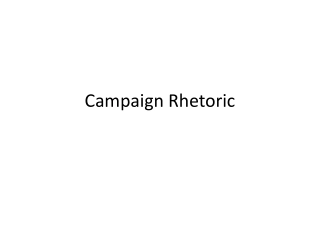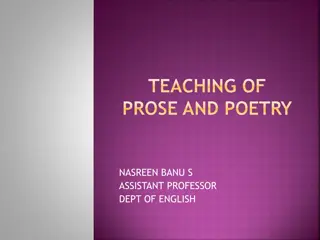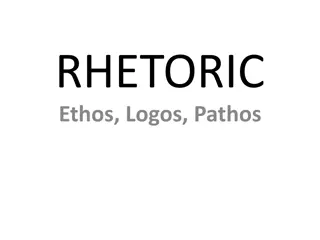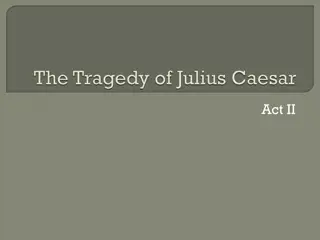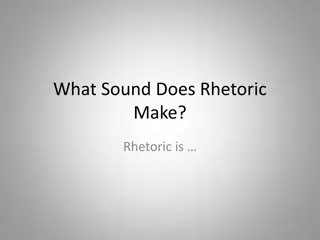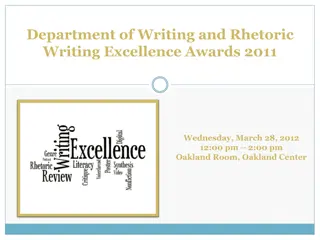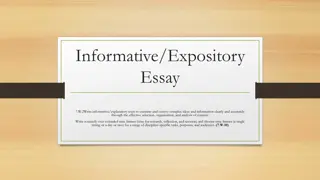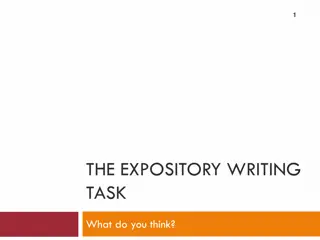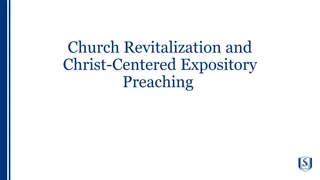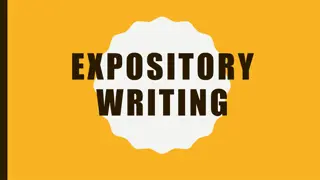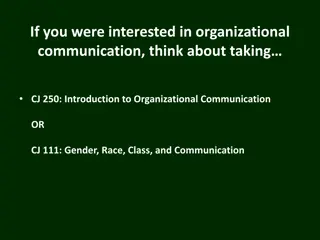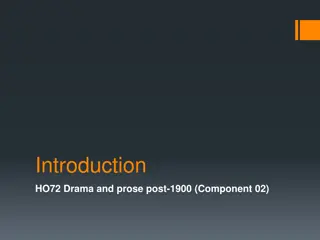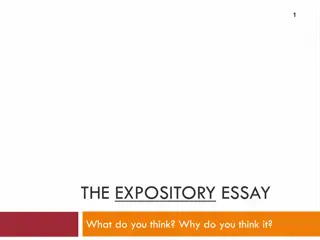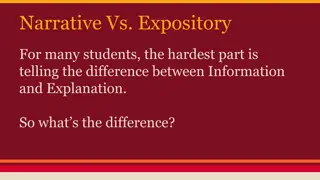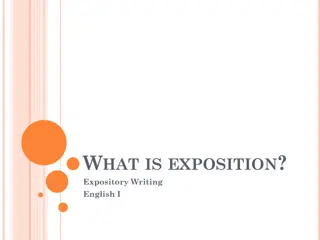Expository Prose and Rhetoric in AP Language Program
This college-level AP Language and Composition course emphasizes expository prose, rhetorical analysis, and effective writing skills. Students engage with various texts to enhance their writing style, critical thinking, and research abilities, preparing them for academic and professional success. Expectations include active participation, responsible behavior, and proper use of technology. The course covers grading criteria, late work policies, and academic integrity guidelines to ensure a rigorous and rewarding learning experience.
Download Presentation

Please find below an Image/Link to download the presentation.
The content on the website is provided AS IS for your information and personal use only. It may not be sold, licensed, or shared on other websites without obtaining consent from the author.If you encounter any issues during the download, it is possible that the publisher has removed the file from their server.
You are allowed to download the files provided on this website for personal or commercial use, subject to the condition that they are used lawfully. All files are the property of their respective owners.
The content on the website is provided AS IS for your information and personal use only. It may not be sold, licensed, or shared on other websites without obtaining consent from the author.
E N D
Presentation Transcript
The A P L a n g u a g e & C o m p o s i t i o n Antioch High School Course description he AP Language and Composition course is a college-level program that introduces students to a wide range of expository prose in order to broaden their scope of rhetorical ideas and deepen their awareness of the power of language. The course is designed to meet the rigorous requirements of a college level writing class and includes expository, analytical, personal, and argumentative texts from a variety of authors and historical contexts. These works provide examples of prose writings that students can emulate in their own writing experiences as they discover and create their own style and voice. Room1110 Vol 25 No 11 Ms. Chaffins helenchaffins@antiochschools.net T This course provides students with the information necessary to read analytically, formulate theories and arguments based on the readings, and respond by composing articulate essays that utilize advanced elements of sentence structure, syntax, style, purpose, and tone. The purpose of the AP English Language course is to help students write effectively and confidently in their college courses across the curriculum and in their Professional and personal lives. (The College Board, AP English Course Description, May 2007, p. 6). Using rhetorical principles, students will learn how to become critical thinkers, and apply that knowledge to their writing by revising and improving their essays, as well as critiquing and editing peer essays. In addition, students will be required to thoroughly research relevant topics, synthesize information from a variety of sources, and document their knowledge in a cogent well written report using proper cite notations such as MLA or APA. Student Expectations Students will be prepared for class with necessary tools and be an active participant. Students will be on task at all times. Students will be responsible for themselves and their actions. Students will respect others and themselves. Students will adhere to class/teacher/school rules and represent their academy in a positive way. Students will care for and not abuse or destroy classroom and school materials; i.e. books, desks/furniture, computers, staplers, pencil sharpeners, etc.. TEXTS: 50 Essays REQUIRED MATERIALS RECOMMENDED: Binder with pockets to keep work organized Plenty of loose leaf, college-ruled paper Black, blue, and red pens Pencils Highliters or colored pencils Small stapler and a supply of staples Post-It/Sticky note pad H A L L P A S S E S : You are required a certain amount of seat time. Any time you are outside the classroom you are losing important instruction time. Unless under specific circumstances, you should not ask to leave the room for any reason the first 10 minutes AND the last 10 minutes of class time. Your absence from the classroom will be monitored. Any bathroom visit in excess of twice per quarter will result in loss of participation credit.
AHS W H AT W I L L BE GRADED? 25% 15% 25% 25% 10% Research Project & Factoids Timed Writes Tests & Quizzes Homework Classwork Participation TECHNOLOGY The expectation is that you submit all assignments on time. I accept late assignments up to five weeks late from the due date. You will lose 10% of the score each day. Work will not be accepted after day 5. LATE/MAKE-UP WORK We will be utilizing various resources to access the Internet to research, review material, and submit assignments. You must hold yourselves to high expectations when you use these resources. Your time must be spent well. Unless I specifically say that you may have your cell phones out, you must keep them in the assigned phone pouch at all times. This will factor into your Participation credit. A cademic dishonesty All work that you submit must be your own work. You may not do any of the following: If you are absent, it is your responsibility to follow proper procedures to ensure that you receive your work. Check Teams, ask a classmate, then message me. 1) Turn in or copy someone else s work. 2) Copy someone s work and change a few of the words. 3) Copying words from a source without citing it and giving credit to the source. 4) Reusing work that you have already submitted in previous classes and/or years. 5) Attempt to use any notes on a closed-note assignment. 6) Look at someone else s work during a quiz, test, or otherwise individual assessment. If you are doing any of the above or anything else that constitutes cheating, you will receive a zero on that assignment, and you will be referred for discipline. (See also Academic Integrity Policy for AI) Technological issues do not excuse you from completing your work. B e r e s p e c t f u l . B e s u c c e s s f u l . THE MAGIC This room is more than just a classroom. It s our spot to learn, to grow, to teach, and to become better readers and writers. Let s work together to build up a positive environment with lots of energy. Be respectful. Be responsible. Be successful. Let s start each day with a smile and a high five.
AHS E L A A c a d e m i c I n t e g r i t y P o l i c y DEFINITIONS PURPOSE Purpose: This policy aims to maintain and promote academic integrity within the high school community by outlining the consequences for students caught cheating through the use of artificial intelligence on their schoolwork ACADEMIC INTEGRITY: Being honest and responsible in your schoolwork. It involves doing your own work, not cheating or plagiarizing (copying someone else s work and claiming it as your own, or using your own work that was turned in to another teacher at another time), and acknowledging the sources you use in your assignments. It is about being fair and respectful to yourself and others in the academic community. CHEATING: Any act of dishonesty, including but not limited to plagiarism, using unauthorized aids, or employing artificial intelligence to complete assignments. ARTIFICIAL INTELLIGENCE (AI): The use of technology or algorithms that mimic cognitive functions to perform tasks traditionally requiring human intelligence. PROHIBITED ACTIVITIES Students are strictly prohibited from engaging in plagiarism or using artificial intelligence, automated tools, or any unauthorized means to complete assignments, exams, or any other academic tasks. We advocate for students to write their own work rather than use AI to develop their skills as it fosters critical thinking, creativity, and a genuine understanding of the material, which are essential for their academic and personal growth. D E T E C T I O N a. Teachers and school administrators will employ plagiarism detection tools and other relevant technologies to identify instances of AI- assisted cheating. b. Reports from faculty, fellow students, or any credible sources will also be considered during investigation. C O N S E Q U E N C E S a. First offense: i. c. Third offense: i. Zero credit for the assignment or exam with the ability to redo for up to 70% credit. Issuance of formal warning. Notification to parents or guardians, counselor, and Vice Principal. b. Second Offense: i. Zero credit for the assignment or exam ii. Mandatory meeting with the teacher or relevant school staff to discuss the incident. iii. Notification to parents or guardians, counselor, and Vice Principal. iv. 1st referral, meeting administrators to address recurring issues. Zero credit for the assignment or exam. Placement on academic probation. 2nd referral to the school administration for further disciplinary action. ii. ii. iii. iii. All instances of AI-assisted cheating and plagiarism will be documented in the student s academic record, including details of the offense, consequences imposed, and any additional notes investigation. from the with relevant
P l e a s e s i g n a n d r e t u r n t h i s s h e e t o n l y t o M s . C h a f f i n s . T h i s w i l l b e c o n s i d e r e d y o u r f i r s t a s s i g n m e n t w o r t h c r e d i t . I have read and understood the school and classroom policies in this syllabus. Student Signature: Date: _______________________________________ ______________ Parent Signature: Date: _______________________________________ _______________ I s t h e r e s o m e t h i n g y o u n e e d m e t o k n o w a b o u t y o u ?


